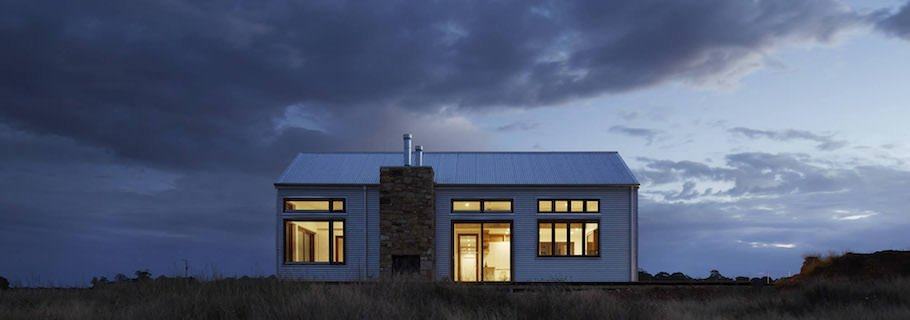It is Labor Day today, and we anticipate spending the day with friends. We will be spending the day with these particular friends because a few weeks ago they emailed and said, “We want to do something on Labor Day. With you. At your house.” They just went ahead and invited themselves over and invited some mutual friends to come with them. I love it.
Many years ago I wrote about this subject of inviting yourself over and was rather surprised to hear how many Christians find this an objectionable practice. I found myself thinking about inviting yourself into another person’s home while reading Rosaria Butterfield’s book The Secret Thoughts of an Unlikely Convert. She writes about the open door policy in their home and it reminded me of my younger days in my parents’ home: “Anything worth doing will take time and cost you something. We notice, as our attention focused more on families and children, that many people in our community protect themselves from inconvenience as though inconvenience is deadly. We decided that we are not inconvenienced by inconvenience. We are sure that the Good Samaritan had other plans that fateful day.”
Let me offer a few reasons that you ought to be willing, eager even, for people to invite themselves into your home.
Your house is not your own. We all know this in theory, but we have difficulty putting it into practice. Everything you have, everything you own, is a gift of God that is meant to be used for his purposes. This applies not only to money (that’s too easy!) but also to possessions. Your car is God’s car, your house is God’s house. Just as you are expected to be a faithful, generous steward of your finances, you are to be a faithful, generous steward of your house. I would suggest that people cannot feel welcome in your house until they are convinced that they can invite themselves into it. And I would suggest that you have not fully reconciled yourself to the fact that it is not your house until you are willing to have others invite themselves in. Do people feel welcome in your house? Do they feel that they can invite themselves to your house for counsel, fellowship or to “borrow” a couple of eggs they need to finish a birthday cake?
One of the highest purposes of Christians is to extend hospitality and friendship to others. In a culture where individuals are becoming ever more individualistic and families are ever-more retreating into their own lives, Christians can be known as people who graciously and cheerfully extend hospitality to others, who refuse to be inconvenienced by inconvenience. Christian houses will be known as the ones with open doors, where invitations are extended and expected. This is the type of house I grew up in. It is the type of house I have grown to love.
Your time is not your own. In the same way God gives us money and expects us to use it faithfully and wisely, he gives us time and expects us to use it in a way that honors him. Yet we all constantly battle against becoming selfish with our time, we battle grumbling against others when they use our precious time. As Butterfield says, we protect ourselves against inconvenience, and one way we do that is by keeping our doors closed. Do people feel that they can presume upon your time? Do they feel that you are available to them if they have questions or concerns or if they need to learn how to use those eggs to bake that birthday cake? Or do they feel that to use your time is to cause you inconvenience and that you are hesitant to make time in your schedule for them?
Your home is not your own. I’ve often differentiated between a house and a home to show what a thrill and what an honor it is that the Holy Spirit makes his home within us. It is an important distinction. A newly constructed neighborhood not far from me advertises “homes beginning in the low 300’s.” But they aren’t really selling homes, are they? They are selling houses. A house only becomes a home when a person lives in it and when it begins to take on the personality of the inhabitants. An empty house is just a shell. It is much like a dead human body, which is a body, but not a person. A home is also a gracious gift of God. The gifts, personalities and talents of the various inhabitants combine to make a home what it is. All of these are given by God and he expects us to be faithful stewards of them.
Is your home open to others? Do you allow people not only past the door of your house but also in your home, into the life of your family? Do you invite people into your living room, the formal room immediately beside the front door, or do you invite them into the kitchen where you can be less formal and extend more intimate hospitality? Do people feel they can come to your home only for formal Bible studies or can they come to your home for a personal chat or simply companionship? Do people feel they can drop by at a moment’s notice or do they wait to receive a formal invitation?
When I’ve discussed this subject in the past, I’ve seen many Christians display an attitude that tacitly suggests that their home is their domain and that others do not have a right to presume upon it. But that is simply not a biblical-informed attitude. Your house, your time and your home are not yours. They belong to God and need to be fully surrendered to him and to his better, higher purposes.
It is my hope that people feel they can invite themselves over to my home. I hope they feel that I am willing and eager to use my gifts and talents and time to bless them in whatever way I can. I hope people see that my house and my home and my life have an open door.










